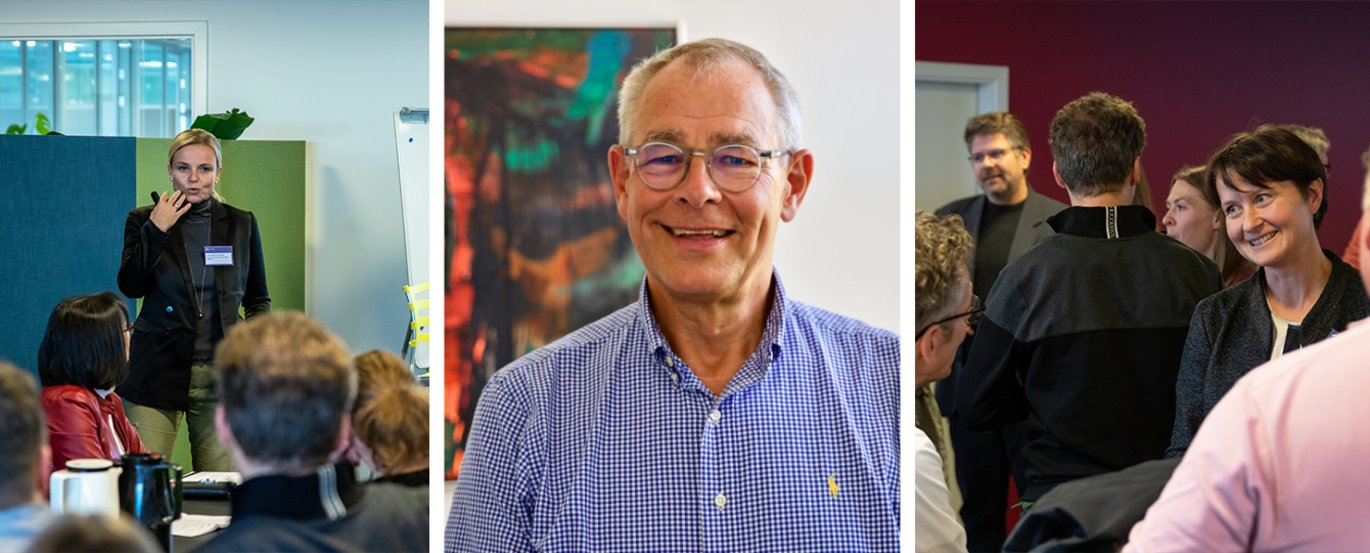What could a chance meeting in the new professional research networks lead to?
Big, bold research projects that bridge the university’s long-established divisions have traditionally come about because one researcher happens to know someone from another field of research or department. Health’s five different professional networks now offer researchers the opportunity to actively look for the chance meeting, says the new Vice-dean for Research, Hans Erik Bøtker.

During the last year or so, five professional networks have been established within the faculty’s positions of strength, and if a researcher wishes to do something good for him or herself, then being active in one or two of the networks ought to be at the top of their list. This is the advice to the academic environments from Hans Erik Bøtker, who is the new vice-dean for research at Health:
“Join the networks. Turn up at the events you’re invited to, actively participate and get to know the colleagues you don’t yet know, even though being a researcher is time-consuming and you maybe can’t see a specific purpose. At some point, this type of investment yields something good,” says Hans Erik Bøtker.
He points out that ambitious research projects which end up in high impact academic journals are increasingly characterised by collaboration across basic research and clinical practice, and often also involve international partners.
Outside your comfort zone
"When this much sought-after type of synergy occurs, it’s always because someone knows someone. A couple of years ago, I was involved in a cardiology project where a colleague at the cardiology department came to suspect that a certain type of heart rhythm irregularities in patients was genetically contingent," says Hans Erik Bøtker as an example from his own experience as a researcher.
"My colleague couldn't make do with establishing this in a traditional clinical study, and because he by chance had heard of a researcher who was doing basic research and looking into ECG changes in zebra fish, the project grew into something far more complete which ended up in Nature Communications. And this is the direction that we have to go with Health research," he says.
"We need to help these chance meetings happen and mutually increase curiosity in some of the areas where research ideas have not yet been born."
Richer – also socially
In addition to the professional and academic benefits, Hans Erik Bøtker also emphasises the social aspects that are inherent in meeting colleagues that you would not otherwise automatically run into during work in a research group or at a hospital department. The social benefits were apparent when The Cardiovascular Network at Health held its first meeting last year, and when The Food and Nutrition Network brought together sixty researchers to discuss food and nutrition in the context of health and disease.
This brings Hans Erik Bøtker to a current dilemma, which is that one of the upcoming annual meetings in the Cardiovascular Network which was actually scheduled for 10 September has just been cancelled out of consideration for the researchers who are simultaneously employed at the hospital.
Due to the risk of infection with the coronavirus, clinicians employed in the region are not permitted to physically take part in events attended by many people, regardless of disinfection and distancing measures, while guest speakers from abroad have also cancelled.
Not everything can be done electronically
"It's really frustrating as the network's strength is very much the personal meetings" says Hans Erik Bøtker.
"Of course, a research network can conduct a webinar where you hold presentations for each other, but I'm sure most people would agree that digital platforms are less than optimal as a forum for informal conversations with people you don't know," he adds.
However, one thing that can be done electronically is registration in a network. Simply send an email to the network coordinator – the information is available on the network's website – and ask to be added to the otherwise non-binding mailing list.
"Once you do this you will automatically be informed about what is going on in the individual network. It could hardly be easier," says Hans Erik Bøtker.
Information about each network and its purpose, steering committee and contact information can be found on the five network’s websites:
- The Cardiovascular Network
- The Inflammation Network
- The Food and Nutrition Network
- The Personalised Medicine Network
- Neurocampus Aarhus
Contact
Vice-dean for Research Hans Erik Bøtker
Health, Aarhus University
Email: boetker@au.dk
Mobile: (+45) 4029 3389
